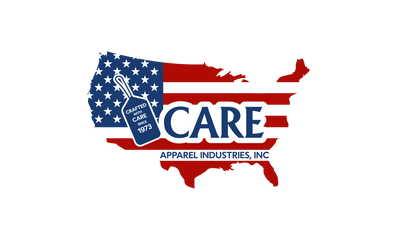7 Tips How to Deal with Elderly Incontinence
Dec 03, 2023
What is the Elderly Incontinence?
It is the loss of bladder control or the difficulty of controlling urination. It is a disorder that affects millions of adults of all ages and of both sexes. It ranges from having a small leak of urine during coughing, laughing to having a strong urge to urinate and having the difficulty controlling it.
At present, more than 12 million Americans suffer from the disorder and senior citizens are at higher risk of suffering the disorder.
The primary reasons for the disorder include:
- Diabetes
- Inability to move due to arthritis
- Urinary tract infections
- Enlargement of men's prostate glands
- Weak pelvic muscles after childbirth
- Thinning and drying of the vaginal wall especially after menopause
- The build-up of stool in the bowels
- Obesity because it increases the pressure on the bladder and muscle to control the urge to urinate
- Vascular diseases
- Inability to move and high calcium content in our body
- Alzheimer's disease and multiple sclerosis
There are different types of incontinence namely:
Stress
It happens when your urine leaks due to sudden pressure on your stomach muscles caused by lifting something heavy, coughing or laughing.
Urge
It occurs when you have the urge to urinate suddenly even before you can go to the toilet. It is commonly manifested in elderly individuals.
Overflow
It is the uncontrollable leakage of small amounts of urine caused by your overfilled bladder.
Functional
It is when you have the normal urine urge but you failed to go to the bathroom on time due to difficulty of moving around.
Mixed
It is a combination of the different symptoms listed above.
It is not part of growing old, but it is part of the changes that occur as one grows older because it can reduce the amount of urine that our bladder holds. Moreover, aging can make our stream of urine weaker and makes us feel a strong urge to urinate often.
Most cases of incontinence in elderly individuals are untreatable, thus, proper care and understanding are needed from family members.
Assuming the role of caring for an aging parent or elderly relative is an extremely difficult undertaking. The role of the caregiver gives you the responsibility of caring for your loved ones emotional and physical wellbeing.
In order to fulfill this role effectively, the caregiver must be aware of the physical and emotional limitations that may be affecting the aging parent or relative in their care. One of the many issues that affect seniors is the problem of urinary incontinence.
commonly referred to as UI, urinary incontinence affects more than 20 million people in the United States and is a major issue for older adults.
What Causes Urinary Incontinence?
It's important to understand that urinary incontinence, in and of itself, is not a disease. UI is a condition that is symptomatic of a variety of underlying medical and/or physical conditions.
That being said, it also needs to be understood that UI is not a normal part of the aging process; but it does have the potential to place older adults at an increased risk for bed sores, falls & UTI (urinary tract infections).
Helping Your Aged Loved On Manage Urinary Incontinence
If you are caring for an aging parent or loved one, there are a few things that you can do to help deal with the challenges associated with urinary incontinence.
See a Doctor
Taking your loved one to see a doctor is important because there is much that can be done to manage and treat UI with incontinent solutions. Some doctors recommend you keep a journal that details the daily activities of your loved one and how many accidents they have. This journal is used to keep an account of the times of the accidents, the types of meals that they have eaten, the medications they have taken, etc. It will give the doctor enough information to make an informed enough decision to create a treatment plan. As part of the family, you should understand their condition and extend your support and care to them. Bring them to your physician to discuss available options to address the problem.
Make the Bathroom Accessible
Ensuring that the bathroom is accessible is extremely important for your loved one. This can be done by removing any obstructions that may be in the hallway leading to the bathroom. It's also recommended to have the pathway to the bathroom well lit. This can be done with nightlights or glow in the dark tape. Also, make them available with incontinence diapers.
Purchase a Portable Commode
In case your loved one can't make it to the bathroom in time, it is helpful to have a portable commode that they can use for an emergency. Be sure to leave a little water in the portable commode, because it makes it easier to clean.
Raised Toilet & Seats
If you find that your loved one makes it to the bathroom, but has an accident before they are able to use the toilet, it could mean that the toilet is too low & they have a problem sitting down. This problem can be remedied by replacing your current toilet with a raised toilet.
Assuring Elderly
Since the majority of them are in the denial stage and they refused to accept the situation, it is your duty to understand and to help them accept the fact. Assure them that it can be managed and dealt with properly.
Know the Alternative Options
Know alternative options available to address the disorder. There are numerous products like elderly diapers, absorbent pads, and waterproof bedding. CareActive helps you to get the best comfort solution for incontinence.

